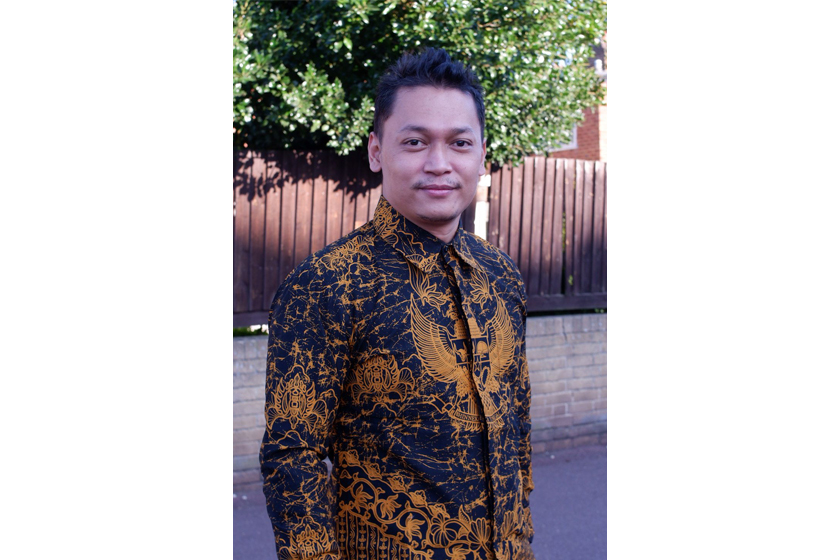11 February 2025
Join our Australian Alumni Grant Info Session!
Are you an Australian alumnus or Australia Awards in Indonesia scholar who want to strengthen your A... Read more
The Australia Awards are prestigious, transformational scholarships and short courses offered to emerging leaders for study, research and professional development in Australia

13 October 2021
 DifatravelX: Empowering People with Physical Disability through Virtual Tours and Experiences
DifatravelX: Empowering People with Physical Disability through Virtual Tours and Experiences
Project leader: Mr. Gilang Ahmad Fauzi
Level of education and university: Master, Development Studies, Murdoch University
Collaborating Organisations: Difabike
Project Location: DI Yogyakarta
Activity Type: Capacity building, mentoring or coaching
Sector: Disability Services, Small and Medium Enterprise Development
Project Rationale:
Many research projects and studies have shown that tourism can empower people with disabilities through job creation and social interactions. This opportunity can also increase awareness toward a more inclusive society. Tourism supports people with disabilities by providing opportunities to serve as tourist guides, drivers, massage therapists, chefs, entrepreneurs and more.
Although tourism can offer opportunity, the job competition in tourism is also very high. The basic segregation between able-bodied individuals and those with special needs has also hindered the opportunity in the tourism job sectors to be more inclusive. Tourism education for people with disability is also still very limited.
Moreover, during the COVID-19 pandemic, people with disabilities, especially those who work in the tourism and hospitality sectors, have become so much more vulnerable. Not only has their income reduced but many lost their jobs, for example tourist guides and transportation providers. During this pandemic, people with disability need to find options for alternative income that are still inclusive and empowering. This issue becomes more complex since most of them come from a low socio-economic background. Difabike, an online motorcycle tour and guide service conducted by people with disability, has seen opportunities decrease rapidly due to the pandemic. Triyono, the leader of Difabike, explained that with a mission to empower people with disabilities socially and economically, Difabike focuses on offline tours that require face-to-face interactions. Therefore, in this current pandemic situation, the demand for tours through Difabike has decreased which has impacted the 55 members’ income.
Meanwhile, virtual tours and virtual experiences are a new trend for tourism emerging from the COVID-19 pandemic. The revenue from virtual tours mostly goes to the hosts or tour operators who enter the market and offer a creative service and interactive experiences through technology. Online tourism marketplaces such as Airbnb, TUI Musement, Viavii, and Traveloka are a few giant companies that now offer virtual tour options. In Indonesia, the earliest and leading operator is a Yogyakarta-based startup called Travelxism, led by two Australian alumni: Gilang Ahmad Fauzi and Desideria Cempaka Wijaya Murti, PhD.
Through Travelxism, a start-up concerned with social and sustainable tourism, Gilang, a graduate of Murdoch University collaborated with Desideria, a graduate of Curtin University, to design a paid virtual tour program which allows people to travel to a region or country via Zoom. By using the tagline “Being Elsewhere by Going Nowhere,” the virtual tour is directly guided by a person on location and can be followed by anyone without being limited by distance and time. The virtual tours have been covered in media such as Kompas, Goodnews Indonesia, a talk show at Sea Today, received an award by German Tour Company called TUI Foundation, and received an award by Ministry of Education and Culture Republic of Indonesia (Kemendikbud). The virtual tours not only aim to help people to travel without leaving their comfortable houses, but also allow tourist guides to receive an alternative income, connect Australian schools to a Bahasa Indonesia learning environment in thematic locations, and connect Indonesian students to the cultural exchange of other countries through a virtual environment. Five schools that learn Bahasa Indonesia in Australia have participated collectively as groups and classes in these virtual tours. Seven Indonesian schools that want to learn history, geography, and language also participate collectively to virtually travel to Japan, Korea, Australia, and Sweden. In total, the virtual tours from Travelxism have helped more than 1,000 people to travel virtually. Finally, the third episode of the OZAlumn Podcast hosted by Desy Bachir, in May 2020, also covered this innovation as a significant contribution of Australian alumni during the COVID-19 pandemic.
Meanwhile, during the process of experimenting with virtual tours, Travelxism has had participants and hosts who are people with disabilities. They can conduct virtual tours as hosts and are also happy as participants who learn and travel to new places without the physical limitations in mobility that they always face as a significant challenge to receiving exchange experiences. However, very few people with disabilities are currently taking advantage of the economic potential of the virtual tour business.
Project Beneficiaries:
Priority Development Area:
Stability
Link with Australian organisation: -
Share this project on:
 Related Project Profiles
Related Project Profiles
This website uses cookies to improve your website experience. We may also use cookies to analyse website data so that we can improve our online services. To find out more visit our privacy policy.
